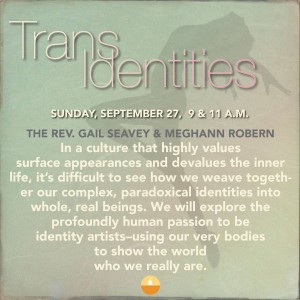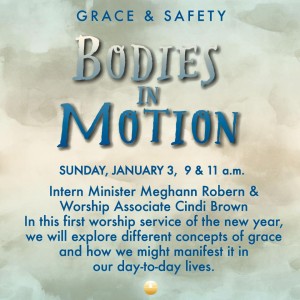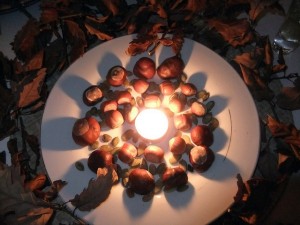This the text of the second half of a joint sermon given by The Reverend Gail Seavey (not included) and myself at First Unitarian Universalist Church of Nashville on September 27th, 2015.


Listen to the Entire Sermon (including Rev. Gail Seavey’s beginning half):
Trans Identities
So one of my biggest encounters with my lizard brain — at least the one that had the most outward effect — is the story of how I came to shave my head.
A couple of years ago, I was a full time seminary student with two part time jobs. At the time I worked with a lot of vets who had maintained their military buzz cuts, and one day I found myself thinking, “Oh, how I wish I could do that.”
And then it hit me — I CAN do that, if I’m willing to deal with the cultural reaction. My life had gotten stretched so thin, my choices so limited and my time so precious, that I chose to create an outward appearance that was a honest manifestation of my inward being, despite the inevitable blowback I knew would come.
Strangers would call me “dyke” — as if that’s a bad thing — but still an assumption based solely on appearance. At my multifaith seminary, many thought I’d converted to Buddhism. Regardless of how positive or negative the reaction was, however, not a day went by that I wasn’t asked why I had shaved my head, while men walked by with shaved heads that no one noticed.
The absolutely hardest reaction has been the folks who think I’m sick, that I must have cancer. Because in their reading of what women should and shouldn’t look like, only women who have cancer shave their heads. And yet, this assumption that they put on me comes from their sense of connection, their overwhelming desire to reach out and help someone in need. They are my best teachers when it comes to navigating the art of identity, because they constantly remind me that cultural readings are about humanity, and that while the EFFECT of categories and labels are often harmful, the INTENT is not always about harm. And the more we are each willing to create our outsides to match our insides, the better we understand how make sure the effects our actions have on others matches our intentions.
It also works in reverse. While my INTENT in shaving my head was personal, was self-ish, the EFFECT has been to chip away at cultural assumptions about women’s appearance just by walking out my front door.
Now, I want to be clear — the creative act of shaving my head had, still has, a LOT of privilege holding it up. I’m white, which unfortunately our current culture pervasively makes “the norm” to the extreme detriment of people of colour. I have reliable access to clean clothes in good repair. I’m taller and heavier than most people, which makes me less likely to be physically attacked. When people do lash out at me because my identity art, my holy act of creation, makes their lizard brain anxious, they use words. The various ways in which my body has privilege protects me in a way that is denied to trans persons, especially trans persons of colour, when they act to bring their inner and outer selves into harmony.
All I had to do was buy a $20 electric razor. Those who wish to transition, to bring their inward self and outward self into right relationship, face huge costs in terms of money, time, and emotional bandwidth. Surgery can cost thousands. Hormone regimens can, too, and under our healthcare system are a lifelong cost. Legal fees pile up. Even the price of transitioning an entire wardrobe can be cost prohibitive. And transitioning itself, this holy, creative act, can often lead to losing the job that was paying for the transition, because firing someone for being trans is legal in most of our country.
And those who live as trans, regardless of how they choose to transition, often find themselves at the mercy of a world built upon the fallacy of binary gender being inextricable from one’s sex assigned at birth.
Just a few days ago, Shadi Petosky, was detained by TSA agents at the Orlando airport because a body scanner only has two settings — male and female — and her penis showed up as an “anomaly.” They held her against her will, causing her to miss her flight. American Airlines charged her full price to rebook her ticket, almost a thousand dollars, and she was denied her new boarding pass until a police officer ordered them to print it for her.
And every time I revisit this story, as I’ve followed how both the TSA and American Airlines are attempting to publicly gaslight Ms. Petosky despite her photographic evidence of what happened, I’m overwhelmed with gratitude to that police officer. It’s a sign, for me, that change has already taken root in our culture, as the trans community has, historically, had as much to fear from police and other first responders who were supposed to protect them as the ones attacking them.
Our call to worship spoke of those among us who are hurt and afraid, those who come with hope and anticipation, those who seek to learn, all a part of this family. Reverend Gail spoke to us about the concept of tribe, of the fundamental idea of a community that keeps its members safe. Through our new member celebration this morning we are reminded that we are, indeed a tribe.
The trans community lives in fear of poverty, abuse, violence. These things happen to our members and friends, to their loved ones. Out there, beyond these walls, more often than not they have to choose between being seen, or being safe. In here, as part of our community, we see them. We see you. You are us. What happens to you, happens to us. We cannot be whole until you are whole.
And the more we all choose to embrace the holy act of creating ourselves, of being identity artists, the safer we can make it for those around us. Embracing my role as an identity artist might have made living in this world just a little bit easier for someone else who doesn’t conform to expectations.
Wholeness is a constant creative process. We are not sculptures carved in stone. We are living beings, with thoughts and feelings and ideas that change with every encounter. We are all creative people, built on a relationship between the inside and the outside, energy going back and forth, growing, evolving.
How can we see you the way you need to be seen?
How can we help you feel safe?
What is your next holy act of creation?
What kind of tribe will we, together, create, and re-create, every day anew?



